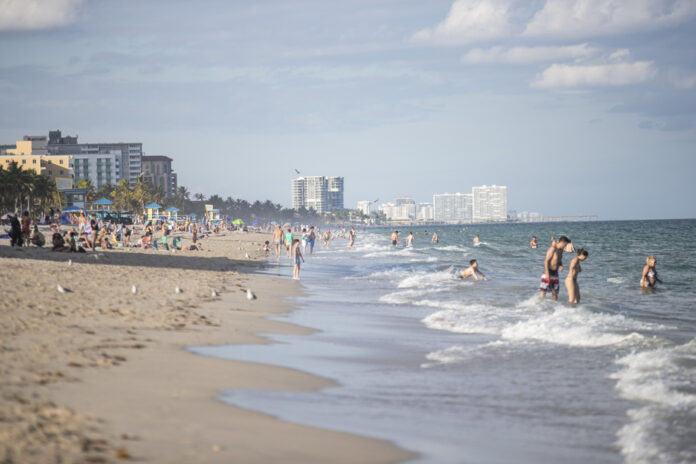We can dream big for retirement: luxurious residence, warm winters, cruises, etc. But sometimes, we get caught up in our budgetary reality and we have to review our priorities.
Married for 18 years, Christiane* and Claude*, 58 and 62, would like to retire this year. They would like to sell their house and go live in a residence for active and independent people at a cost of $3,500 per month. They also want to winter in Florida and maybe even go on a cruise a year. Everyone has savings for retirement in Registered Retirement Savings Plans (RRSPs) and Tax-Free Savings Accounts (TFSAs). Claude has a pension plan, Christiane inherited a condo worth about $500,000 and both will have government pensions. They estimate that they will spend about $80,000 per year in retirement. “We’re wondering if we can afford to do all of this by retiring this year,” says Claude.
Annual salary: $45,000 Quebec Pension Plan (QPP): $764 per month at age 60 and $1,080 at age 65 Locked-in Retirement Account (LIRA): $145,000 Registered Retirement Savings Plan (RRSP): 171 $000Tax-Free Savings Account (TFSA): $88,000 Inherited condo: $500,000, with a mortgage of $117,000
Annual salary: $103,000 Pension plan: $11,520 per year indexed by 1% annually for 10 yearsRRQ: $990 per month at age 62 and $1,224 at age 65RRSP: $116,000 TFSA: $88,000 Residence: 450,000 $ with $200,000 mortgage
At first glance, André Lacasse, financial planner and financial security advisor at Services financiers Lacasse, had the impression that the couple had big ambitions considering their assets. To find out for sure, he entered their data into his retirement planning software. Result ?
The couple can afford to spend $80,000 a year if Christiane lives to age 96 and Claude to age 94, which is the life expectancy that the Institut québécois de planification financière recommends for making projections.
But, André Lacasse was not reassured. He therefore looked more carefully at the budget provided by the couple. He then noticed that several expenses seemed underestimated. Starting with groceries and restaurants. The couple said they spend $6,000 a year on groceries, or $58 each a week. And it’s the same in restaurants.
“It seems very little to me with the prices of 2023, indicates André Lacasse. It would be safer to at least adjust the grocery bill upward, probably even double it. »
In addition, the couple’s budget includes expenses for the maintenance of the car, but not for the purchase or rental. “I imagine their car is paid for right now, but after 10 years, it has to be changed,” says André Lacasse. It has to be foreseen. Especially since Christiane and Claude are still young. »
The couple also budgeted $8,000 annually for travel. “It’s only $4,000 a year each, while the price of travel has increased a lot recently,” says the financial planner. To spend three or four months a year in Florida, you have to go there, stay there, etc. Cruises are also expensive when you think of all the costs associated with them, such as the plane to get there, the night at the hotel before departure, parking the car, etc. Probably this amount should be revised upwards. »
So if the couple adds an extra $6,000 for groceries, $3,000 for the car, and, say, $4,000 a year for travel, the lifestyle would no longer be $80,000, but $93,000.
The couple can, however, rework their budget in order to reduce certain expenditure items, according to their priorities. “Christiane and Claude seem to give great importance to travel,” notes André Lacasse. Considering that they will be outside Quebec several months a year, they could, for example, decide to reduce their housing expenses. »
The couple plan to allocate no less than $42,000 per year to their rent, including electricity, heating and parking. That’s more than half of his annual spending of $80,000. “It’s a lot,” says André Lacasse. For example, Christiane and Claude could sell their properties and buy a small condo that they would not even need to finance. They would just have the [co-ownership charges] to pay, with taxes, electricity and heating. So they could probably get by on about $1,000 a month, which would leave them with $30,000 a year. »
They could choose this option for the next few years and go to residency later with the money they have saved. And the taste – or the possibility – of travel is also likely to be reduced when they get older.
André Lacasse also invites the couple to draw up a disbursement plan. For example, Christiane has a LIRA of $145,000, an amount that comes from a former pension plan.
“Before age 65, she can turn it into a life income fund and apply for a temporary annuity,” says André Lacasse. She could pull out about $26,000 next year and that could be worth it if she’s finished working and is waiting to apply for her government pensions. As this would be her only income, she would be taxed very little on this amount. »
As for government pensions, André Lacasse suggests that the couple wait before asking for them. “Many people apply for them before age 65, but it comes with a big penalty,” says the financial planner. Both benefit from first taking the funds from their LIRA [locked-in retirement account] and their RRSPs. By waiting until age 65 to apply for their government pensions, which they will receive for life and which are indexed, they will have more in their pockets. Unless, of course, their life expectancy is reduced. In this case, it is to their advantage to request them as soon as possible. »
Planning a project that requires wise use of your money? Do you have financial problems?















